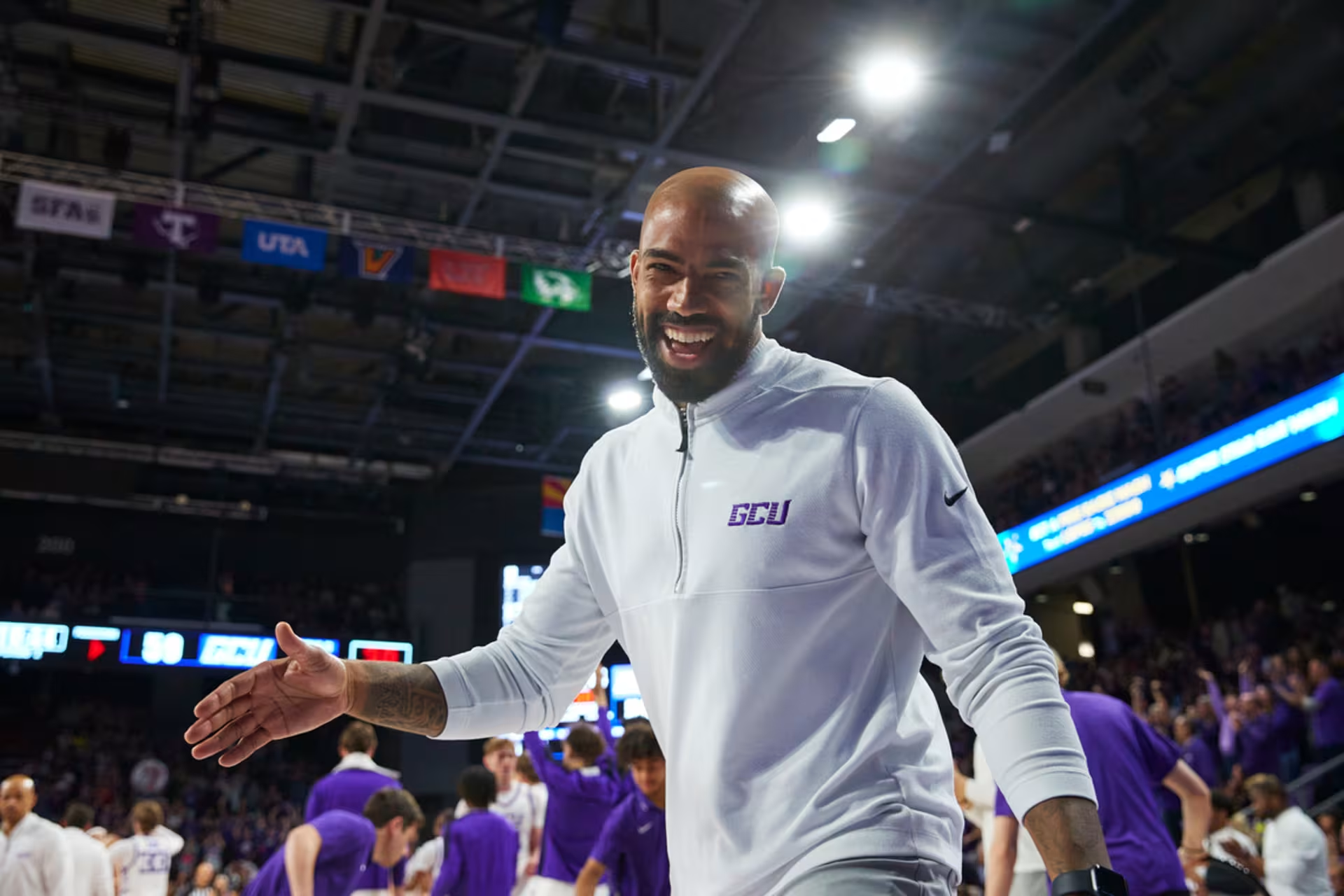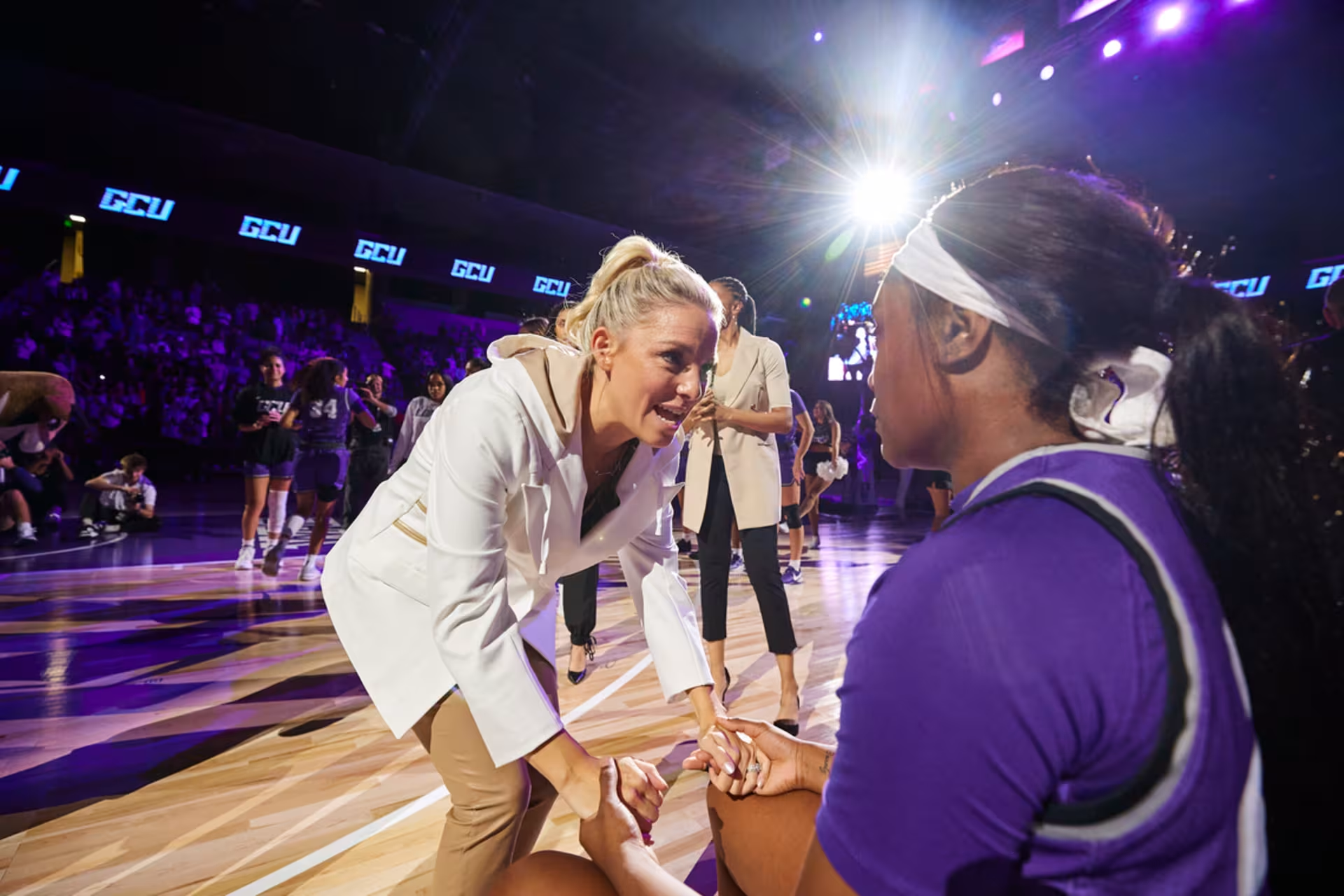
BS in Psychology: Performance and Sport Psychology Degree
Gain Knowledge To Help Others Unlock Their Full Potential
Combine your passion for sports and performance with a desire to understand human behavior by pursuing a career in sport and performance psychology. The Bachelor of Science in Psychology with an Emphasis in Performance and Sport Psychology offers foundational knowledge in psychology while integrating performance enhancement and coaching principles.
This degree, offered by the College of Humanities and Social Sciences, is ideal for those interested in mental health, fitness, sports or the performing arts. You’ll be taught to assist athletes and performers in overcoming psychological obstacles, optimizing their performance and building resilience through evidence-based strategies.
Estimated growth for coaches and scouts expected from 2024 to 2034(See disclaimer 3)
Up to 90 credits, only 84 can be lower division
Credits: Fill out the Lopes Eval to find out what will transfer
Admission Requirements (Bachelor's)
- 16+ years old
- High School Graduate
- 3.0+ Unweighted GPA
OR 2.5+ Unweighted GPA and
- ACT: 19
- SAT: 1000*
Admission requirements may differ based on degree level, program and modality, or transfer status. Some programs of study may require a higher GPA and/or other qualifying criteria for admission. Please review full admission and program requirements in the University Policy Handbook.
*Math and reading only on a 1600 point scale (test date after 3/1/2016). SAT score of 1380 required for 2400 point scale (test date before 3/1/2016).
Invest in Your Future With Purpose-Driven Education
At Grand Canyon University, we believe that education should cultivate both intellect and character. Our faith-integrated curriculum is grounded in a Christian worldview, empowering you to lead with integrity and purpose. You can take advantage of flexible learning options, whether on campus or online and benefit from comprehensive student support resources. Plus, our affordable tuition makes it possible for you to advance your education.
Experience GCU’s vibrant campus life while earning your degree. Learn from knowledgeable faculty who provide mentorship and guidance. Access extensive library resources, career services and join clubs that can enrich your academic journey. Enjoy a beautiful campus setting with opportunities for connection, growth and support every step of the way.
Earn your degree with flexibility through GCU’s online platform. Access faculty mentorship, tech support, eBooks and interactive discussion boards to help keep you engaged and connected. Learn online while enjoying a supportive virtual environment.
New online and evening undergraduate psychology or behavioral health science students may be eligible for up to 32% off tuition scholarship.(See disclaimer †)

Explore Sport and Performance Psychology Coursework
This performance and sport psychology emphasis focuses on evidence-based psychological assessments and interventions to enhance performance and well-being. It covers core competencies in personal development, leadership and resilience.
Guided by knowledgeable instructors, students explore psychological factors driving achievement and develop skills in assessments and intervention strategies. The capstone project allows for practical application of knowledge to challenges, showcasing expertise in the field.
Key sport and performance psychology topics include:
Psychological research and ethics
Social and psychosocial aspects of sports
Leadership and team building
Psychology of coaching
Career Paths in Performance and Sport Psychology
Performers and athletes face significant pressure to deliver their best and perform consistently, and performance psychology professionals help them navigate these challenges to unlock their full potential. This field applies to various areas, including the performing arts, business leadership, the military and high-stakes professions, where mental resilience and focus are critical.
Professionals work with a range of individuals from elite athletes to stage performers, supporting them in staying motivated, managing stress and maintaining peak performance. They use evidence-based strategies to enhance confidence, concentration and emotional regulation, aiding personal growth and goal achievement.
To position yourself for potential career advancement, a master’s degree is typically required, as most roles in performance psychology call for graduate-level education. However, it’s important to note that this program does not lead to professional licensure or prepare graduates for clinical practice, which often requires licensure-eligible training. Licensure requirements vary by state, so it’s important to research the specific regulations where you plan to work.(See disclaimer 2)
There are performance and sports psychology career opportunities in multiple settings, including:(See disclaimer 1)
Professional athletic teams
High school and collegiate teams
Community outreach programs
Vocational rehabilitation
Performance arts coaching and management
Corporate coaching and leadership development
Earn Your Psychology Degree From an Accredited University
Grand Canyon University has been institutionally accredited by the Higher Learning Commission since 1968, reflecting its commitment to academic excellence. This accreditation signifies that GCU adheres to high standards in curriculum, faculty qualifications and student support services.
Frequently Asked Questions
Before choosing to pursue a bachelor’s degree in psychology, you may have questions about the program. To aid your decision, we’ve gathered answers to commonly asked questions.
How do you become a sports psychologist?
What is sport and performance psychology?
Is it hard to become a sports psychologist?
What does a sports psychologist do?
Program Curriculum
General Education Requirements
Core Courses

Unlock your potential and pursue a career in sport and performance psychology at GCU, where you can help empower athletes and performers.
(See disclaimer †) MOU 10324: This scholarship is only valid for new student applicants who submit a complete application, meet all requirements for acceptance and start an online or evening Bachelor of Science in Psychology or Bachelor of Science in Behavioral Health Science beginning on or after Feb. 1, 2026. GCU will award eligible applicants a scholarship of 32% off tuition per course for your program. This scholarship cannot be used in conjunction with any other GCU scholarship/awards. This scholarship will be applied toward your tuition only, and you will not receive funds in excess of your charges.
- Cherry, K. (2023, Feb. 28). What Is Sports Psychology? VeryWell Mind. Retrieved August 2023.
- Psychology.org Staff. (2023, July 11). How To Become a Sports Psychologist. Psychology.org. Retrieved August 2023.
- COVID-19 has adversely affected the global economy and data from 2020 to 2023 may be atypical compared to prior years. Accordingly, data shown is effective August 2025, which can be found here: U.S. Bureau of Labor Statistics, Occupational Outlook Handbook, Coaches and Scouts, retrieved December 2025.
- American Psychological Association Services. (n.d.). State licensure and certification information for psychologists. Retrieved January 2026.


